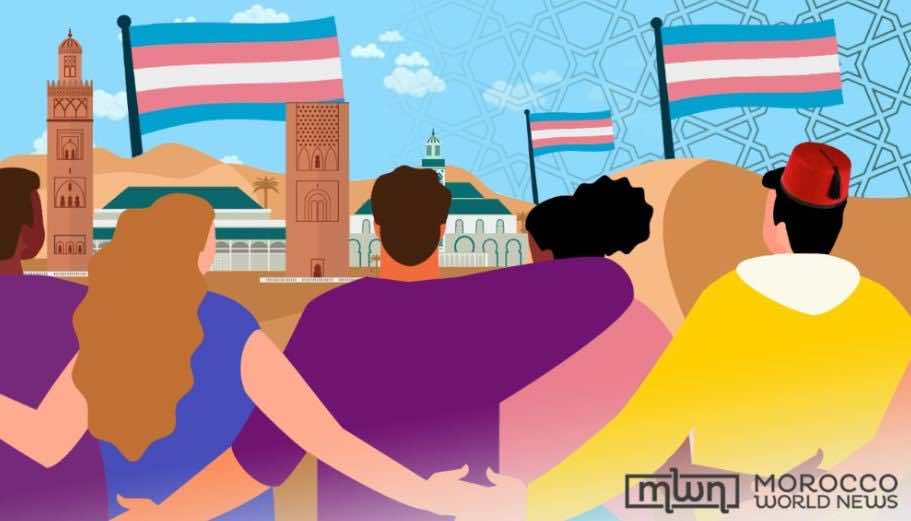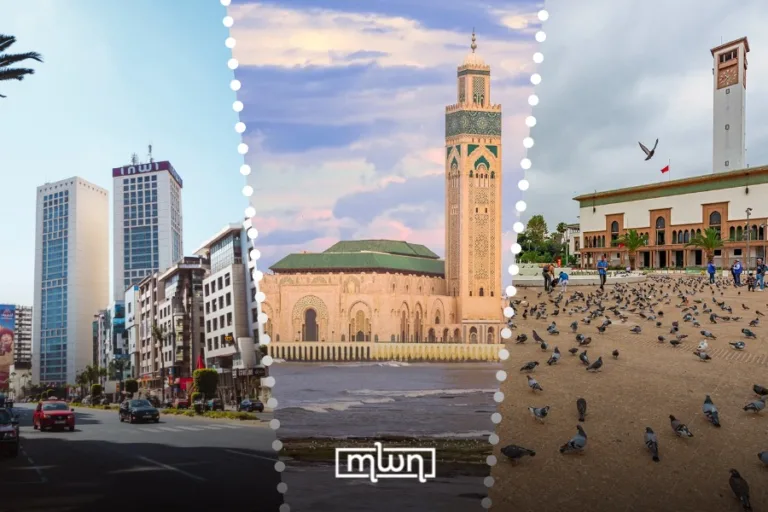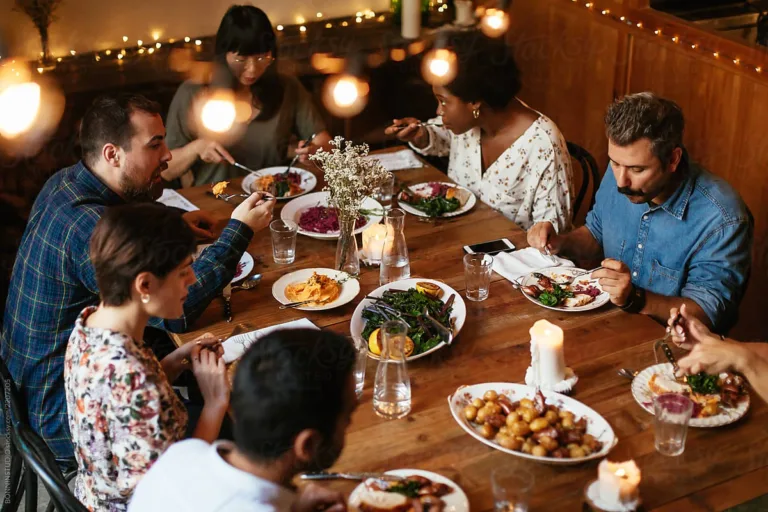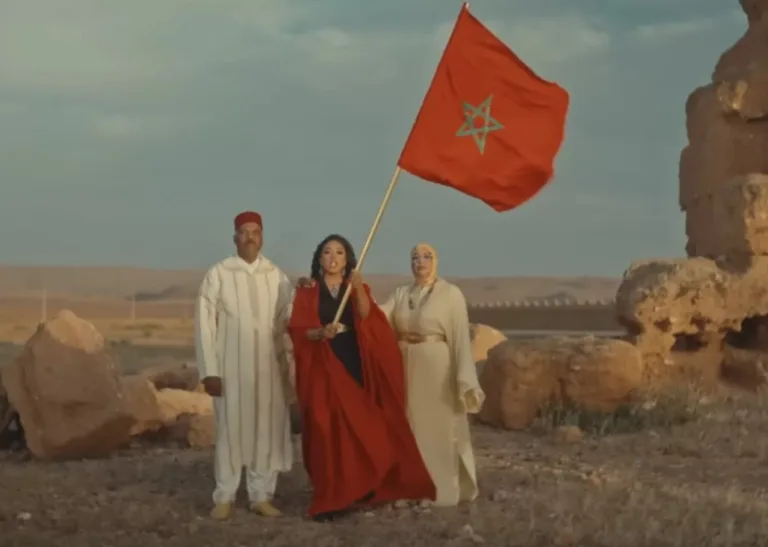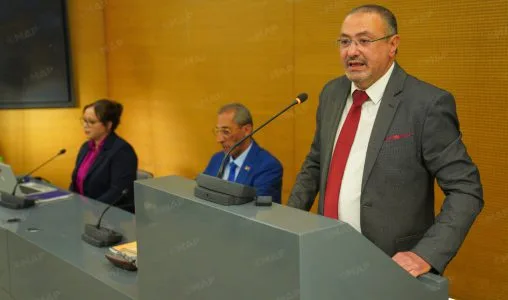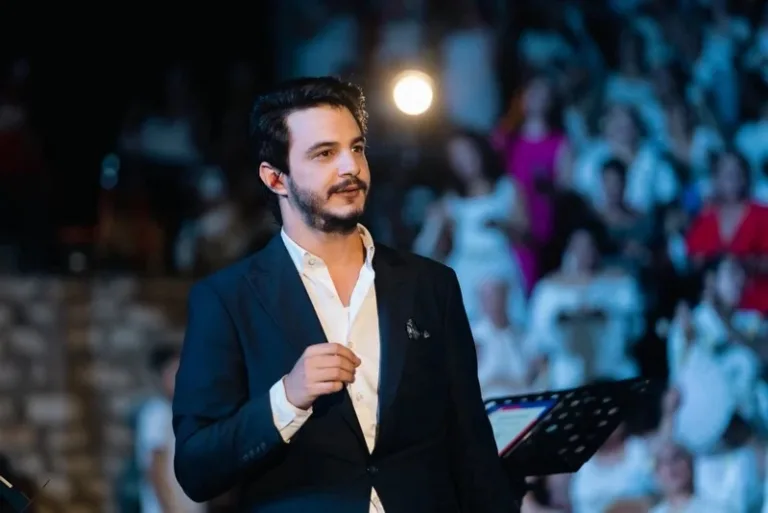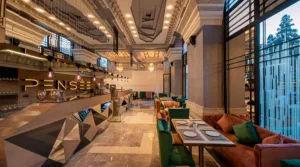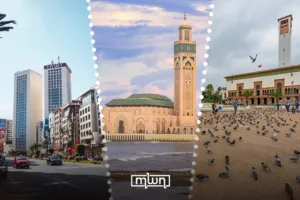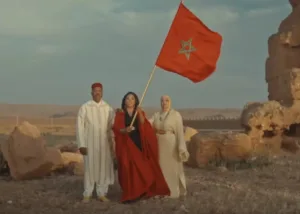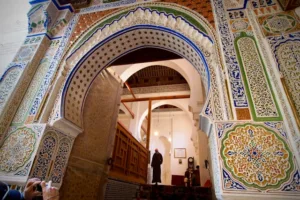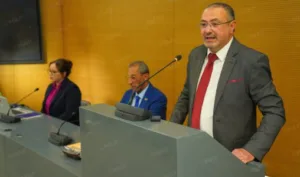Rabat- In light of transgender awareness week MWN gathered different perspectives about the community in Morocco.
We will hear the stories of personal journeys from members of the transgender community. Also, we hear an imam’s perspective, as well as researchers that specialize in gender and a neuropsychologist’s view.
Medical and emotional support
When it comes to seeking medical advice or therapy there is a small group of professionals who have knowledge on the subject and treatment in Morocco.
Haniy is a transgender man living in Morocco, he has experienced first-hand the non-existent healthcare for members of the transgender community. “Doctors fear for their jobs, they won’t give you the documents you need to go abroad and seek treatment,” Haniy deliberated.
A large percentage of transgender people in Morocco (Haniy included) instead self-medicate, taking hormones that they buy over the counter in pharmacies. These hormones allow them to start changing their physical appearance as much as possible without surgery.
When I asked Haniy how he knows the correct dosage to take, he said that he asked people abroad that have used hormone injections. Basing a self-made medical regime on word-of-mouth can be dangerous; “We risk our lives and our bodies only to get a small part of self-satisfaction,” Haniy warned.
The Muslim transgender community
I noticed Haniy’s profile picture read Allah in Arabic calligraphy, I asked him to share his experiences of being Muslim and transgender.
“There is no evidence in our religious book against transgender people but some imams issues fatwas (Islamic law) prohibiting it…there is a contradiction between the imams, there are those who forbid it and those who accept it, but nobody talks about it,” Haniy explained.
Despite the setbacks Haniy insisted he does not care what they [imams] say, instead he has resigned himself to the fact that he has “to battle to prove himself.”
Moroccan trans man Eden Ghali Ben Baki considers himself as Muslim, he named religion an important factor in his journey towards self-acceptance. Before embarking on his transition, he searched to see if it was prohibited in Islam before moving abroad and undergoing gender reaffirming surgery.
“Ultimately, after researching it, I found religious texts that encourage trans people to transition. I also eventually was convinced that God would never create a person and let them suffer in a body that doesn’t belong to them. I was able to be more at peace with myself thanks to that discovery. In that way, Islam did save my life.”
Currently, there is no mention of transgender people in Moroccan law, however, there are no rights for the community either, Eden explained.
Even with Morocco’s refusal to recognise the transgender community, Haniy proclaimed his love for his country, and that he does not want to leave it, still, he feels vulnerable without rights.
MWN spoke with Adiba Naoua, a gender researcher at Hassan II University, “There are many trans people who live in alignment, coherence, and harmony with their Islamic faith.”
Naoua described denying someone of the right to be simultaneously Muslim and trans as “a kind of spiritual violence that deprives some people of their right to spiritual rooting.”
“Islam is not monolithic [rigid], as much as one can draw arguments for violent extremism, Islam is also open to interpretations and moderate readings of sacred texts which promotes love, understanding, and acceptance,” she affirmed.
The teachings of an imam
During the interview process MWN contacted numerous imams abroad and in Morocco, all of which refused to speak on the topic, except for one, reflecting the fact that people are unwilling to discuss the topic.
Hassan Serrat, an imam and author from the city of Rabat, was willing to speak with MWN.
Firstly, the imam specified that “only specialists in Islamic sciences who are familiar with the volatile realities of life” can interpret what the Quran says about their community.
Serrat continued, “Therefore, I am telling you that there is no mention of transgender people in the Holy Quran, and whether they are right or wrong.”
In his response he referred to the Quran’s “extensive discourse…on sexuality, regarding its origin, state, and destiny, and details of a confrontation between two wills.”
“God’s will is for people to live in a normal and moderate way,” the imam remarks, adding that “sexual instinct is a sign from God.”
He noted that people should “not submit to it nor disguise it,” and that they should be certain that it is “a creative, attractive, compelling, and wonderful energy that creates life, civilization, this life, and the afterlife if it follows the divine approach.”
He claims that the world is facing an “organized global rebellion against the Godly approach to the instinctive matter.”
During this declaration, Serrat professed such global rebellions “want to impose their agenda on the world, after it spread to all parts of the globe, the Islamic world eluded it. And of course, this is completely unacceptable, and we must resist it by all peaceful and scientific means.”
However, he recognized that there are cases where people are born with both female and male reproductive systems.
While they are known as intersex people, the imam referred to this group as “natural transgender people.” In such cases, he believes that they have no legal issue and that their transition is “correct and even necessary.”
Although, when talking about a transgender person the imam described their wish to transition as “unnatural and forced.” He insisted it is “absolutely unacceptable because it is changing God’s creation.”
If the imam were in the presence of a transgender person he said, “I would carefully listen to them to understand their situation, and if they are the natural type [born as intersex], there is no problem for them.”
“But if they were of another type [transgender], we must advise them, discuss with them, and present arguments to prove their mistake,” he continued.
Regarding the nature of his comments the imam relayed, “I have nothing but fraternal advice for them to return to the normal state. But if there is an international organization supporting them, the matter has gone from an approach of dialogue to that of conflict and controversy.”
On a final note, I asked if he believes that his anti-transgender stance could change, to which he replied, “You are asking and hoping that the position of Islam changes” Serrat noted, “Be certain that Islam’s position will never change, even if pigs fly.”

Malak Elhamidy “We are Human. Difference is not a crime.”
Online community
Haniy runs a social media page for the transgender community in Morocco, which has gained thousands of followers. The digital age has given the community a chance to have a voice and the space to meet people alike.
There is little to no public discussion on the transgender community in Morocco. Haniy explained it is difficult “because neither the law nor religion allows psychological help or medication.” He regretted that, “so far there is no change on the subject, either positively or negatively, because people do not talk about it.”
As Eden Ghali shares his story publicly with thousands of followers, in a world where online hate is overwhelmingly prevalent, I asked him why he chose to share his journey.
Read Also: #Fetrah: Online Campaign Against LGBTQ+ Community Goes Viral in Morocco
“The reason I started sharing my transition online was that I found no one doing it publicly in Morocco or Africa, even though it is extremely important. So it was stemming from a need that the Moroccan community had at the moment. It was very important for me to offer educational content to the trans youth that were following my page,” he enthused.
Eden explained the response he has received from followers, “I have noticed that people have been able to identify themselves to my experience, and as a consequence, been able to put words and labels on their feelings that are linked to gender dysphoria among other things.”
Psychological Impacts
Moroccan clinical psychologist, neuropsychologist, and humanitarian with national and international NGOs Rim Akrache shared her perspective on the trans community in Morocco.
“In Morocco, the gaps in sex education create a lot of confusion” the specialist explained, noting that “a lot of people go to ‘popular’ explanations, drawn from stigmatizing traditional teachings.”
Breaking down the conflicts Akrache commented, “Transgender refers to a group of individuals whose gender identity does not align with social expectations about biological sex, so there is a conflict between the gender labelled at birth and the expression of gender, and they don’t choose to create this conflict.”
A person’s awareness of identifying as transgender “can appear at a very early age, from 3 or 4 years old,” the psychologist stated. In addition, she made it very clear that being transgender is not a psychological disorder, an idea which is very popular among the general public.
Akrache also emphasized that a person’s gender expression has to be respected, and that attempts to influence it can create feelings of gender dysphoria.
Gender dysphoria refers to the clinically observed psychological distress that comes from the biological sex characteristics not matching up with one’s gender identity. Akrache says.
“That’s why, transgender individuals have many mental health concerns and issues, such as depression, anxiety, or suicidal thoughts,” Akrache adds.
Other studies have found that suicidal tendencies or mental health illness among trans people can be attributed to the lack of access to gender affirming care or other factors impeding their transition.
Akrache suggested “lifting trans people’s voices, and education about sexuality and discrimination against sexual minorities to avoid this.”
In general, “the trans community suffers from discrimination, rejection and stigmatization from the society and families too,” she regretted.
Trans people are subject to “verbal and physical abuse, and transphobia” as well as “invasive and inappropriate questions, and misgendering,” Akrache reported.
Misgendering can be intentional or unintentional; it occurs when someone refers to another person using incorrect pronouns or terms.
Both intentional and unintentional misgendering “can be very harmful because people choose terms related to how they identified before the transition, which doesn’t align with their affirmed gender,” the psychologist stressed.
Issues facing the community
Eden highlighted a major battle for the community which he noticed through his online following, “People used to think that being transgender is a choice.”
Over time, those who have followed his story have started to realize (especially parents of trans children) that being trans is not a choice. “I think that first step was primordial in terms of shifting perspectives, and generally made people more accepting,” concluded Eden.
For trans people there are many difficulties regarding their identity on documentation, as Moroccan law does not recognise trans people. “They cannot legally change their names and their gender markers,” Eden explained.
Everyday tasks can become impossible, as Haniy explained, “I have difficulty when I use my identity card, for example, in a bank that causes me problems because of my papers in the name of a girl and I look like a man.” Even in university Haniy did not attend lectures, only exams, to avoid any problems.
Moroccan trans woman, feminist, activist, and founder of NGO “Talayan” Malak Karma Elhamidy expressed what she wishes was more widely understood of the community. “This is not a war of good and evil. Society must be aware that we [trans people] are members of it. We are the community as well, and we are real… We are Human. Difference is not a crime.”
A simple task like going to the doctor can be challenging in Morocco. Malak elaborated on the issue, “we transgender people have problems accessing healthcare if we fall ill…some of us choose to self-medicate to avoid…discrimination and violations by the health and emergency services.”
“Who wants to visit a doctor and end up in a police station or be sexually aggressed or harassed,” Malak added.
In the future Malak hopes these struggles can be eliminated. “We want to notice a change in support, inclusion, safety, and freedom.”
A 2019-2020 report by Akaliyat Association found that trans and non-binary people are two times more likely to be arrested than any other person. Only 15.3% of LGBTQIA+ people who are arrested received legal representation.
Data from the same study showed 70% of LGBTQIA+ participants reported experiencing physical or psychological violence in private or public spaces, noting that trans and non-binary were most at risk.
Masculinity and Patriarchy
Soufiane Hennani is a doctor in molecular biology and an activist who researches masculinity. There is a crossover between the subject of masculinity and the transgender community, as understanding the way men behave towards trans people is paramount to comprehending masculine domination, Hennani explained.
Through his research, he suggests that “the toxic hate from cisgender and patriarchal men” towards transgender people stems from their ideology of what it is to be a “man.”
In addition, he claimed that “transphobia will not stop” without rethinking how masculinity is perceived through education, teaching positive masculinity, as well as changing laws.
There are many factors in Morocco that negatively impact the transgender community, not just religion, Hennani argues, “The patriarchal system is more impactful than religion as it includes historical and political factors.”
“Transphobia is a way of expressing toxic masculinity,” Hennani said, referring to a recent hate crime inflicted on transwoman Haifa in Tangier. “It is no coincidence that the attack on Haifa was inflicted by a group of men.”
Outlining the colonial and patriarchal impacts, Naoua details that “the iron fist patriarchy has upon all aspects of life is a historical dynamic from which religions and laws are not exempt.”
She deemed it “the root of sexism and homophobia, but also gender-roles rigidity and transphobia.”
A misconception surrounding transgender people is when it is thought of as a “western and colonial” matter “with the aim of changing someone’s values,” Naoua explained, emphasizing that it is in fact, the opposite.
The researcher said that transphobia is the western product.
Digging deeper into the colonial history she uncovered that “it is in fact a legacy of heteronormative colonialism and the penal laws the French protectorate implemented and imposed, which have not changed since then.”
“Moroccan trans people are citizens too and deserve to be protected by law,” she concluded.
Read Also: 3inaya Project Pledges to Promote Gender Equality, Sexual Health in Morocco

